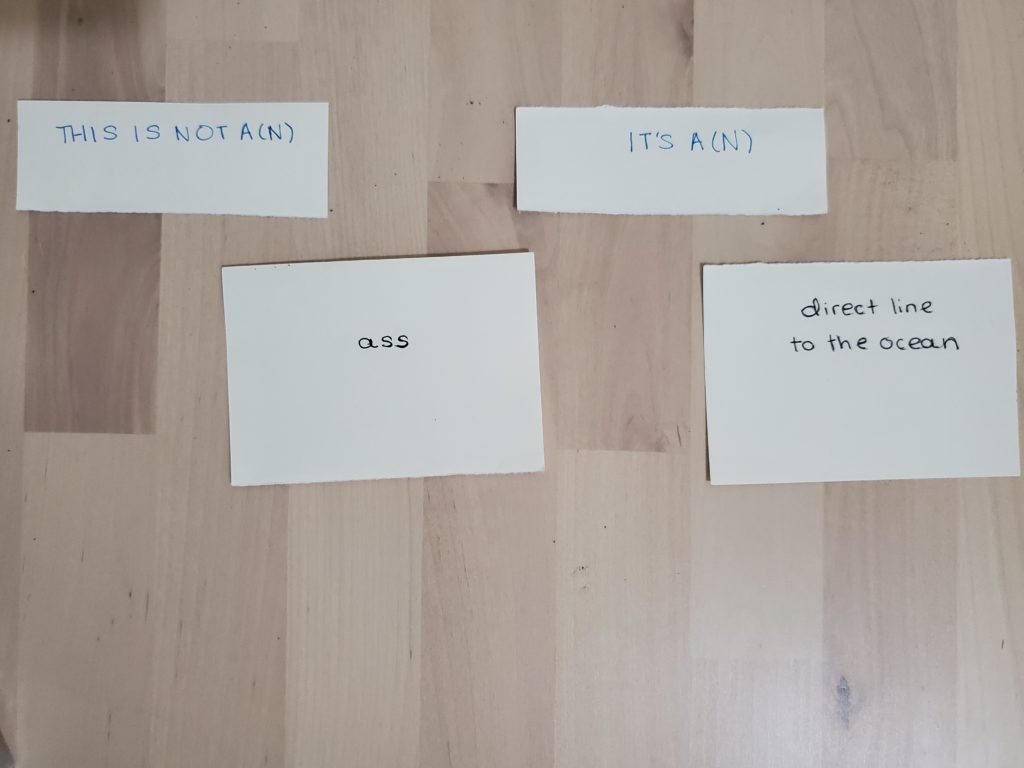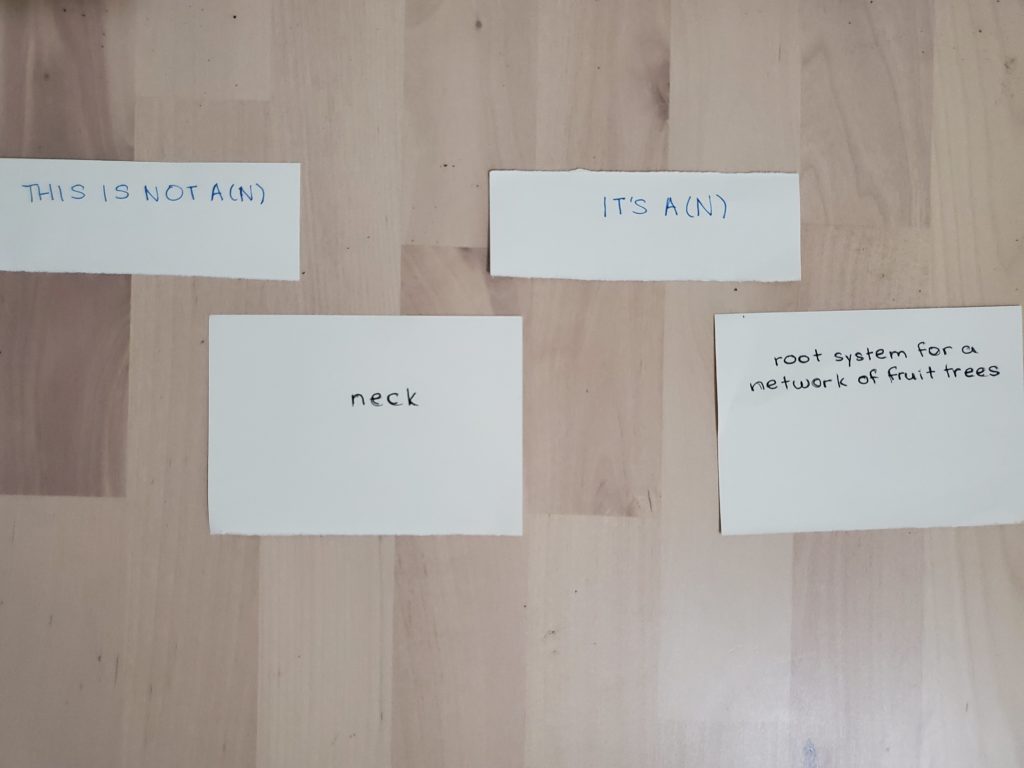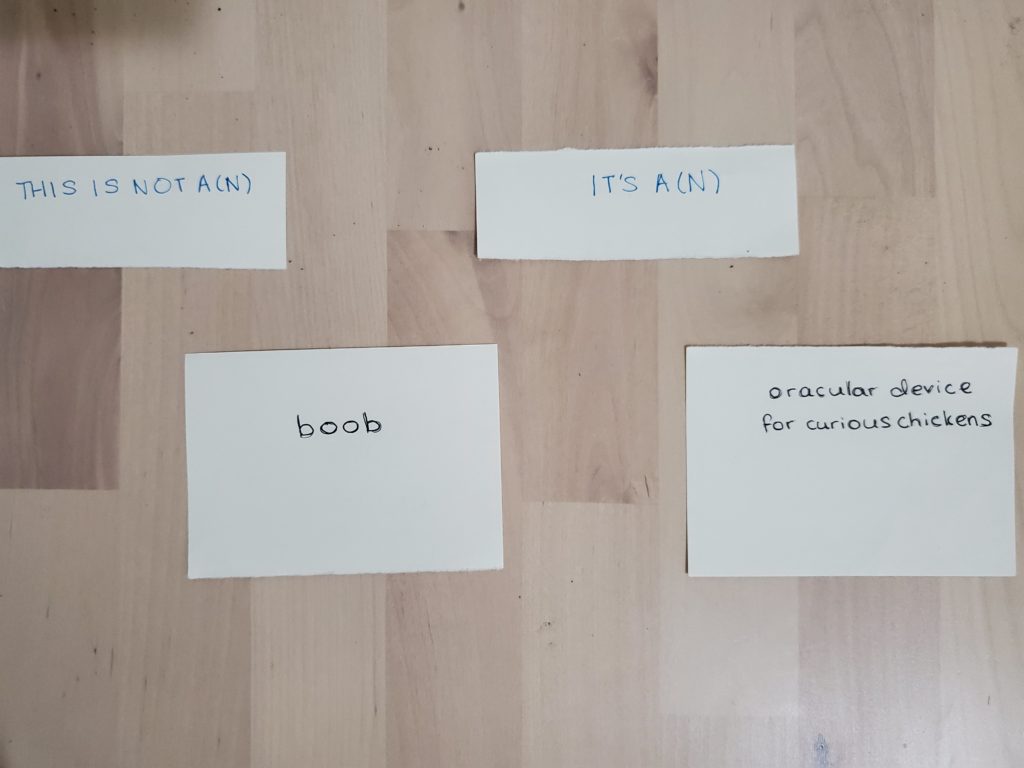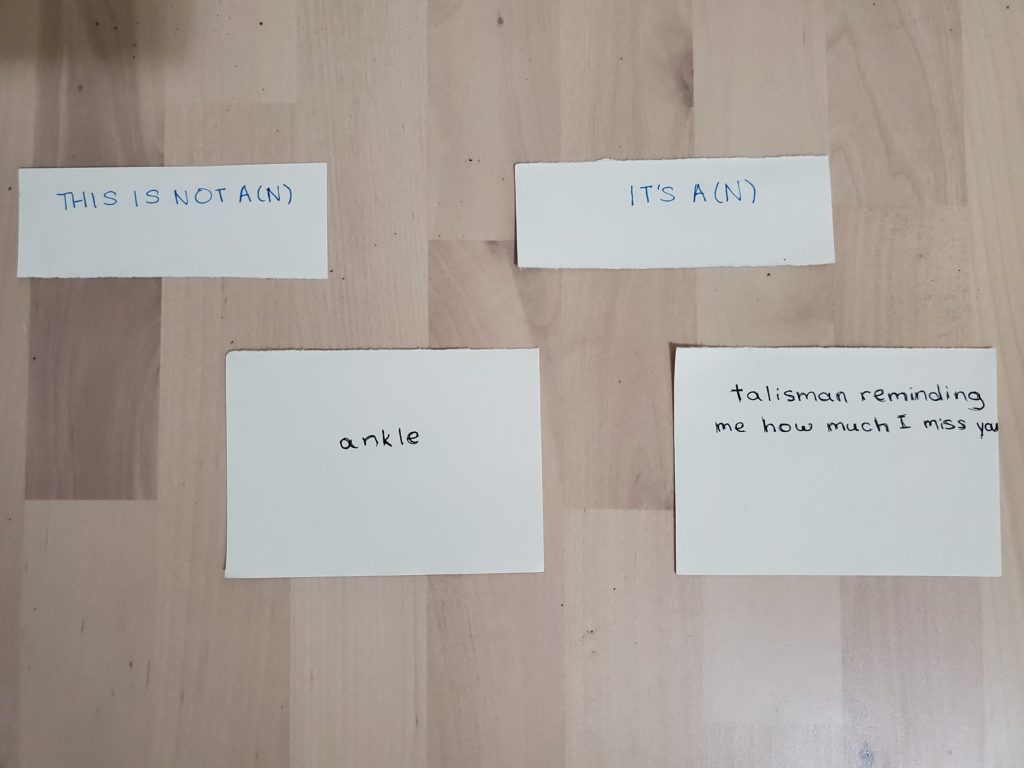In our “Zines As A Loving Practice of Abolition” class session, Neta Bomani led us through an activity about reprogramming our minds and reimagining our world. We each chose an everyday object around us and created an entirely new narrative and function for it. A disposable camera became a pasta recipe generator. A battery turned into a seedkeeping device for the apocalypse. As Neta discussed, abolition is a practice of imagination, of visioning new universes of care and purpose. With abolition becoming a more popular word in recent months as calls to close prisons and defund police departments gain traction, it’s important to remember that abolition–as countless generations of Black feminist thinkers have taught us–is also a constructive and deeply expansive framework. It’s about having the courage and playfulness and love to look at everyday relationships and structures and imagine wild new iterations. It’s about bending meaning, queering time.
Neta’s activity reminded me of what it feels like to step into queerness and transness, to claim how these identities live inside my skin. As a trans person, I feel most loved when my partners and friends throw away the old terms that were supposed to hold my body, and imagine new ones with me instead. When we remind each other that we can tell different stories about our physicality, our limbs, our appendages. How we move and work and touch each other. How we labor and how we remember. Resisting the shapes that bodies are supposed to take under capitalism, committing to being bendy with our hearts and meanings.
I believe deeply in this bendiness, but sometimes white supremacist patriarchy gets me down. As much as it spoke to me about imagination and invention, doing this activity also reminded me of deep dysphoria, of the times when it feels impossible to rid my body of received meaning and create my own. This is not a woman’s chest but a [connection lost]. This is not a ??? (the negative construction fails). A lot of times, none of the “available” language feels right, in any of its gendered possibilities. I feel constrained by the histories of colonial violence that live within English, and how so many of the terms for the body already feel overdetermined. Like Neta said in their presentation, “like any other love letter, our efforts to be earnest are often reliant on the limitations of language and other violent systems of control which have a hold on our imagination or capacity for self-expression.” I want new words for this flesh.
Adapting the logic of the activity we did in class, I created two decks of cards: one with names for parts of the body, and the other with a set of functions/stories/roles. Playing with these decks together, using the second set to clarify and reimagine the first, felt like an imperfect exercise in refusing the rules of a colonial language and its hold over my body. Sometimes games can help you untrap yourself. Here are some attempts.




